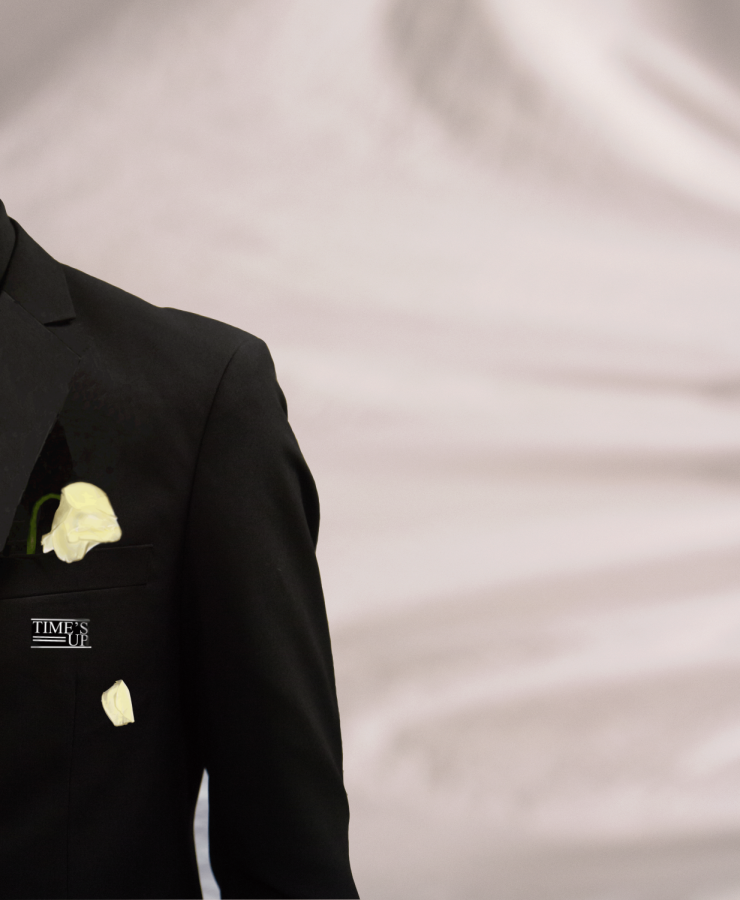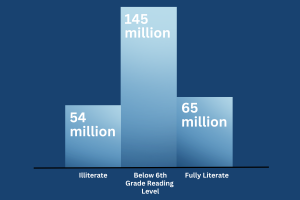Recent award show movements lack lasting impact
Ineffective all-black and white rose fashion statements
March 1, 2018
Black, black, and more black — viewers watching the 75th Golden Globe Awards on Jan. 7 were not greeted by the usual red carpet scene. Instead, celebrities had adorned themselves in all-black attire in support of the Time’s Up movement protesting sexual assault and workplace inequality. Such a symbolic gesture, with the addition of white roses, standing for “hope, peace, sympathy and resistance,” worn at the 60th Annual Grammy Awards on Jan. 28, were well-intentioned in their attempts to address societal issues; however, these fashion statements did not actually make significant contributions to the overall movements.
The Time’s Up movement, announced on Jan. 1, was initiated by 300 prominent female figures in the entertainment industry with the goal of fighting systemic sexual harassment in Hollywood and highlighting the struggles of women with similar experiences in other workplaces. The initiative included a legal defense fund to support less privileged women to protect themselves from sexual misconduct, and, among other reforms, a request for red carpet attendees at the Golden Globes to raise awareness by wearing all black. Inspired by the successful involvement of celebrities at the Golden Globes, the music industry held a similar campaign through a separate organization called Voices in Entertainment, which called for celebrities to sport the accessory of a white rose to the Grammys. The Time’s Up movement has reached beyond domestic borders as well. Attendees of the British Academy of Film and Television Arts Film Awards on Feb. 18 wore Time’s Up badges and black attire; additionally, 190 actors signed an open letter that called for an end to the tolerance of sexual harassment, violence, abuse and discrimination both inside and outside the entertainment industry. At the British Record Industry Trust Awards on Feb. 21, British music stars were given flowers or white rose pins to wear in solidarity with the Time’s Up movement as well.
Celebrity activism in this manner is not anything new. Back in the 1950s, actors Audrey Hepburn and Danny Kaye campaigned as Goodwill Ambassadors for the United Nations Children’s Fund (UNICEF) to increase recognition of the organization’s humanitarian causes. Today, the extensive use of social media in an entertainment-rich culture makes celebrity activism an increasingly popular way for prominent figures to use their platforms to draw attention to particular causes, such as poverty, mental health, disease, literacy and the environment. While charities often benefit from the familiar faces of celebrity advocates to draw monetary donations from loyal fans, critics of celebrity activism are apprehensive of this strategy’s morality, as stars may be more interested in gaining positive publicity than wholeheartedly supporting these causes.
“It seems very obvious that celebrities are using virtue signaling to gain positive publicity and yet I don’t see that as a problem,” said junior Phillip Lee. “It really is just a matter of whether they even care about the cause they seem to be supporting in the first place. I do believe that some celebrities are doing some good in the world by spreading awareness to a certain cause but it just comes down to the person in question at the end.”
Though award shows typically receive a sizable amount of media coverage, the slew of high-profile celebrities participating in campaigns at recent award shows drew particular attention from the mass media. The organizers of movements such as Time’s Up seized the opportunity to spread their message to a large audience through increased media coverage at award shows. But despite numerous articles praising the unity of attendees wearing all-black, there was less conversation beyond that of what people could do to further progress the movement.
While much of the attention at the Golden Globes was focused on celebrity fashion, talk show host and philanthropist Oprah Winfrey’s acceptance speech on the subject of sexual abuse in all cultures was the most talked-about moment of the ceremony itself.
“I would like to hope that Oprah has as much publicity as she can ever have, so I believe that she has good intentions,” said drama and World Literature teacher Naomi Rollins. “I think that if you have the privilege of being famous, using that for good is a huge advantage. It’s hard to know what their actual motivations are, but I think it’s a great to see people with privilege being able to use that privilege to do good in the world for people who don’t have privilege.”
Winfrey’s speech was able to directly address what the Time’s Up campaign aimed to speak for, and established a tangible idea for people to debate about. Merely wearing black or donning a boutonniere of a white flower does little to relay important information about the cause, especially at first glance. More meaningful actions, such as demonstrations, speeches and mass tweets demonstrating support play key roles in the collective movement to uncover sexual harassment and gender inequality beyond the boundaries of Hollywood and into every corner of society. Since sexual harassment accusations against film producer Harvey Weinstein emerged in October 2017, more than 40 other high-profile men have been accused of sexual harassment, assault or both. The most groundbreaking act of protest that many will credit for successfully raising awareness about these issues is the hashtag #MeToo. After a single tweet asking for support of the hashtag, actress Alyssa Milano was met by half a million people who responded to her tweet in the first 24 hours. The immense scale of people around the world who shared their experiences of sexual assault and harassment was a shocking, but necessary, impetus to discuss the problem more openly than before.
“I think wearing a pin, bringing a white rose or wearing black is a good start,” said Rollins. “Every movement needs something that is publicized so the word gets out. What I hope is that the momentum continues forward and there are actual changes made at the government level, instead of just a demonstration of support.”
The fashion statements at recent award shows may have motivated some people to support their cause. Protests, however, should be voiced more clearly, boldly and effectively to openly address issues instead of relying on superficial statements to raise awareness.
In a society largely dependent on social media, celebrity activism is becoming increasingly powerful in influencing public opinion and inciting progression. Following a cultural shift in the entertainment industry due to numerous sexual assault allegations in the past year, celebrities who hold large followings must now deliver their opinions in a more clear and direct manner in order to truly fight against injustices — fashion statements alone are not enough to create lasting change.




























































